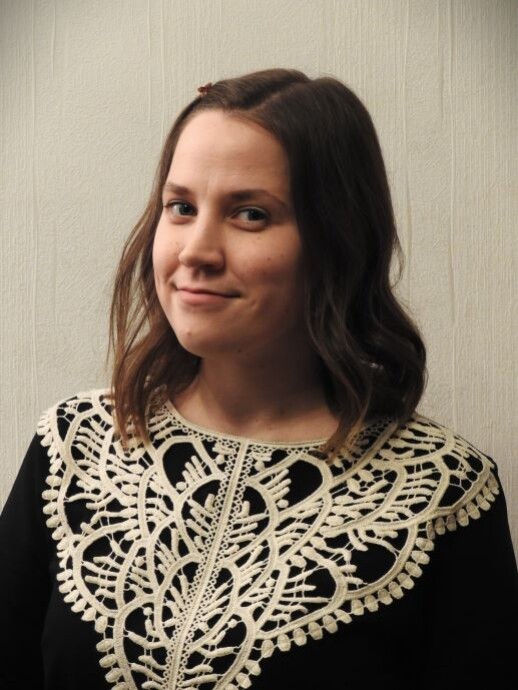
Anni
Hella
Contact
Links
Areas of expertise
Biography
I defended my doctoral dissertation 'How can we trust these books?’ The Use and Authority of Manuscripts in the Council of Ferrara–Florence (1438–39) in December 2023 in the department of Cultural History at the University of Turku. Currently, I work as a postdoctoral researcher in the project “Puhetta metsistä. Metsä epistemologisena välineenä sydänkeskiajan Etelä-Italiassa” (roughly translated: "Speaking of Forests: Forest as an Epistemological Tool in Southern Italy during the High Middle Ages") (PI Docent Teemu Immonen, Cultural History) funded by the Kone Foundation.
In 2024, I worked as a postdoctoral researcher in the project “Pyhiinvaellus liikkeessä: Pyhiin vaeltamisen motiivit ja merkitykset Turussa keskiajalla ja nykyään” (roughly translated: "Pilgrimage in Motion: Motivations and Meanings of Pilgrimage in Medieval and Contemporary Turku" (PI University lecturer and Docent Minna Opas, Study of Religion). The project was funded by the Turku Urban Research Programme.
From 2019 to 2023, I was part of the Academy of Finland-funded project "Strategies of survival: The papal curia and ecclesiastical institutions of Rome in the Great Western Schism (1378–1417)" (PI Professor Kirsi Salonen, General History, now European and World History).
Prior to that, from 2016 to 2019, I worked in the Academy of Finland-funded digital humanities consortium "Profiling Premodern Authors", led by Professor Marjo Kaartinen in Cultural History.
Teaching
I have contributed to teaching in the deparment of Cultural History with individual lectures on Antiquity and the Middle Ages. I have also presented my research topics and methods as part of the department's teaching. In spring 2023, I taught my first independent course on the cultural history of Byzantium. In autumn 2023, I served as the primary instructor for the course "Methodology in Pre-Modern Studies", which featured a group of pre-modern scholars presenting various materials and methods for studying earlier periods.
In addition to these teaching activities, I have supervised master’s students interested in pre-modern topics within the Cultural History thematic group in 2016–2017 and again since autumn 2023.
I completed the Basics of University Pedagogy course (10 ECTS) during the 2023–2024 academic year, and I plan to continue expanding my pedagogical studies in the near future.
Research
At the beginning of 2025, I started working as a postdoctoral researcher in the Kone Foundation-funded project “Puhetta metsistä. Metsä epistemologisena välineenä sydänkeskiajan Etelä-Italiassa” (roughly translated: "Speaking of Forests: Forest as an Epistemological Tool in Southern Italy during the High Middle Ages"), led by Docent Teemu Immonen from the department of Cultural History. In this project, my focus is on studying the significance of the monastery of Grottaferrata.
In 2024, I worked in the project “Pyhiinvaellus liikkeessä: Pyhiin vaeltamisen motiivit ja merkitykset Turussa keskiajalla ja nykyään” (roughly translated: "Pilgrimage in Motion: Motivations and Meanings of Pilgrimage in Medieval and Contemporary Turku"), led by University lecturer and Docent Minna Opas from the Study of Religion. I was responsible for researching medieval pilgrimage in Turku.
My doctoral dissertation examined the Council of Ferrara-Florence (1438–1439), which negotiated the union of the Eastern and Western Churches. While the council concluded with a union, it proved short-lived. My research focused on discussions about manuscripts, their differences, and their authority. Texts of the Bible, Church Fathers, and Ecumenical Councils, preserved in manuscripts, were central sources for the council’s theologians and scholars, who used them to argue for theological doctrines and ecclesiastical practices. However, variations in manuscript versions of the same texts posed challenges. Greek and Latin manuscripts had been preserved both in the East and the West, with some including translations into the other language. New translations were also produced to meet the council's needs. In my dissertation, I considered the role of the council and its theological discussions in the development of humanist textual criticism. While 15th-century humanists traditionally focused on classical texts, ecclesiastical texts played a significant role in fostering their interest in developing textual criticism and translation practices.
As part of the SCISMA project, I researched the monastery of Grottaferrata, which followed Byzantine liturgy and rite but remained under the Catholic Church. I focused on how it navigated the Great Western Schism and reconsidered its identity and loyalty to the pope(s).
In the consortium "Profiling Premodern Authors", which used computational methods to identify the authors of anonymous texts from antiquity, the Middle Ages, and the early modern period, I was responsible for the preprocessing of Latin texts from the medieval and early modern periods.
Beyond these projects, I am interested in a variety of themes, some of which I have already explored in my research. Together with another postdoctoral researcher in Cultural History, Noora Kallioniemi, I published an article on medievalism in Disney’s 1930s short animations.